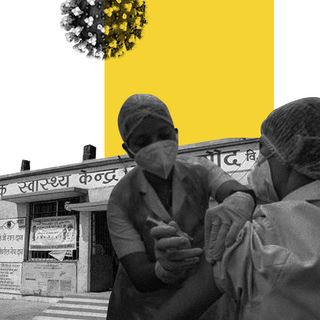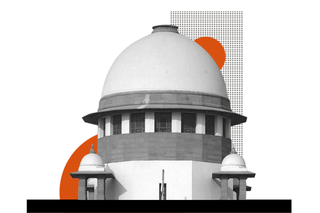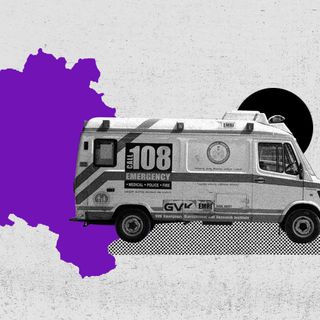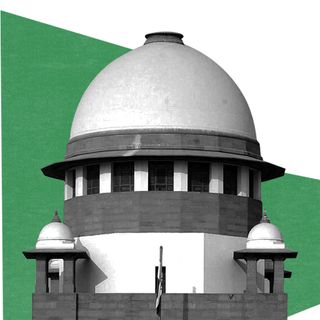
Release ‘Vulnerable’ Prison Inmates to Decongest Jails During Covid19: SC
The court noted “the requirement of decongestion is a matter concerning health and right to life.”

The Supreme Court has asked states to release prisoners convicted or under trial for non-serious charges to address overcrowding in jails and curb the spread of Covid19 infection. The present Covid19 surge presents a threat to their right to life and health, and they should be given parole or bail in non-urgent cases, the court said.
The bench, comprising Chief Justice N.V. Ramana and Justices L.N. Rao and Surya Kant, took note of the overburdened prison system and concerns of the inmates, stating, “Some of the prisons are overburdened… we may notice that the requirement of decongestion is a matter concerning health and right to life.” In a detailed order, the court directed police officials to not arrest the accused unless necessary in crimes sentenced with less than seven years of imprisonment, and directed authorities to ensure that proper medical facilities are provided to the inmates. Prisoners released should also be given transport facilities to travel home amid state-wide curfews and lockdowns, the court said.
The prison system in India is marred by congestion, poor sanitation, and hygiene, and low quality of life. As of December 2019, there were 4,78,600 inmates languishing in jails meant to house 4,03,739 people. The occupancy rate in states such as Uttar Pradesh and Sikkim reaches almost 176.5% and 157.3%, respectively, according to the National Crime Records Bureau (NCRB).
The measures introduced to prevent the spread of the Covid19 infection have often been inadequate and, in some cases, have themselves led to human rights violations, a recent report by Amnesty International noted. The overcrowded state presents a greater risk during the pandemic — cramped quarters make the transmission of the deadly virus a certainty. The matter of decongestion pertains to the right to life and health of not only prison inmates but also of authorities and jail staff.
Related on The Swaddle:
Vaccinate Arrested People Above 45 Years Before They Are Sent to Prison: Bombay HC
The order to decongest prison systems is also pertinent given that over the last one year, thousands of activists and protesters were arrested and sent to judicial custody during the pandemic; most were held in “overcrowded prisons where several inmates had either tested positive of died from Covid19,” an Amnesty International report noted. Bail plea of anti-Citizenship Amendment Act protester Natasha Narwal and Umar Khalid, who was arrested in connection to the Delhi riots, were rejected. Narwal, who has been seeking release since June last year, got an interim bail from Delhi High Court on Monday to perform the last rites of her father who passed away yesterday due to Covid19, according to NDTV.
Narwal and Khalid, in addition to several other activists, are jailed under counter-terrorism and sedition laws, continue to languish in prisons despite concerns from human rights activists about their health. Prison inmates and other people deprived of their liberty are more susceptible to the Covid infection, the World Health Organization noted last year, pointing out prison health is a key part of public health across all countries. Many prisoners have existing comorbidities and “face greater exposure to risks such as smoking, poor hygiene, and weak immune defense due to stress, poor nutrition or existing diseases,” V. Venkatesan argued in The Wire.
Women and the elderly are also among the most vulnerable to infection spread — out of the 4,78,600 inmates, more than 19,000 of them are women. Last week, The Print reported that one of the least crowded Tihar’s women jail had the highest number of Covid19 cases across all prisons in Delhi. Moreover, prisons reproduce many forms of oppression that exist in society. “The criminal justice system targeted towards certain communities – namely poor people, people who are Dalit, Bahujan, and Adivasi, and like all of society,” activist Saumya Dadoo told The Swaddle, “is also disproportionately violent towards women, gender minorities, and people with disabilities.”
The court had asked states and union territories to form high-powered committees in March last year, tasking them with the identification and release of vulnerable categories of prisoners on an urgent basis. It also directed that prisoners who were granted parole last year should again be given an extension of 90 days to tide over the pandemic. The court’s direction comes in response to the “unprecedented surge” in cases. Regular Covid testing of both prisoners and staff, and immediate medical treatment, should be offered across all prisons in light of the Covid surge.
“Such an exercise is mandated in order to save valuable time,” the court said. The order act as preventative measures against prisons becoming a breeding ground for the virus spread; but also, serve to protect human rights of those behind bars.
Saumya Kalia is an Associate Editor at The Swaddle. Her journalism and writing explore issues of social justice, digital sub-cultures, media ecosystem, literature, and memory as they cut across socio-cultural periods. You can reach her at @Saumya_Kalia.
Related


Delhi Sets a Limit on Private Ambulances Charging “Exorbitant” Fees
